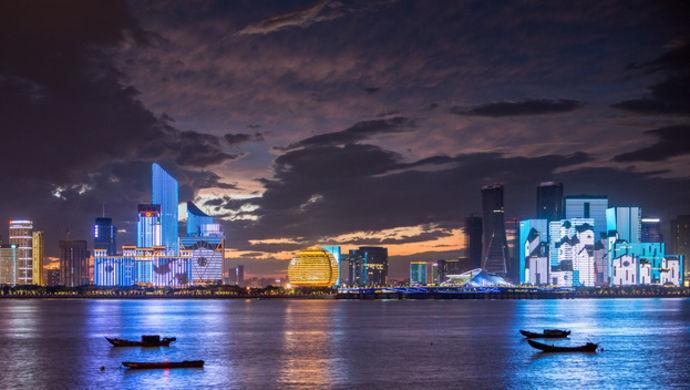By Carl Constantin Press, managing director of The Wine Contor based in Shanghai, Commentary - China, G20 and difficult choices

China will host the next G20 Summit in Hangzhou on Sept. 4-5 as global leaders plan to discuss how to get the fragile global economy back on track.The International Monetary Fund (IMF) has just downgraded its 2016 global growth rates forecast and policy makers will explore methods to jumpstart international trade and investment.
The summit’s theme,“innovative, invigorated, interconnected and inclusive global economy,” is catchy,but China has some pressing concerns on the domestic front.
Moreover,fiscally conservative nations such as Germany may raise its government spending levels to boost economic growth.Nonetheless,Beijing supports supply-side reform policies, which favor a more attractive investment climate and would spark higher consumption spending.
The trend is shifting away from large-scale infrastructure spending,which has contributed to strong imports of commodities to China and spurred growth for the global economy.
Here are some staggering statistics: China has used more cement in 3 years to build its infrastructure and housing than the USA did in over a century.Half of its infrastructure has been built since 2000. Since 2010, China has spent over 540 billion USD on railways alone and out of the ten busiest container ports in the world, seven can be found in China.
Construction has declined slightly in recent months,but agriculture remains one of the few sectors to enjoy continued growth as Chinese diets are adapting to higher protein and improved food quality, which means greater opportunities for food exporting nations.
China’s domestic consumption continues to rise at double-digit rates and has accounted for nearly two-thirds of total growth in GDP (gross domestic product) in 2015.The total value of goods bought on e-commence giant Alibaba alone had risen 23%.
The group of major developed and emerging economies should avoid protectionist trade policies that have already hampered our business climate.
Signs for inclusive and interconnected growth would be realized if large economies such as China decide to lower its tariffs and import taxes,improves its accounting and banking standards, or sets higher product quality standards, creating the right conditions for more imports to flow into the country.
Globalism stands at a crossroads,but innovations in business,science, and technology would continue on in China.In December 2016, Germany will take over the G20 presidency from China and Berlin intends to shift its agenda to responsibility driven growth in line with global Sustainable Development Goals (SDGs) and the Paris Agreement.
Some obstacles are looming ahead as clean and renewable energy will play a more important role in China, but coal is still a short-term “cheaper” option for energy consumers. It’s unlikely the G20 will champion a carbon tax to address climate change and environmental degradation.
Climate Change goals can only be achieved with common effort,and Berlin will ask the G20 to influence future global development to be shaped along these lines, which may likely evolve from a form of crisis management to a true initiator of global societal changes.
Countries could have the potential to meet their growth targets.Bolstering inclusive, as well as innovation in technology, business practices and standards could maintain long-term growth and initiate a new type of industry that achieves efficiency, growth and sustainable development.
Industry 4.0 is coming soon,which may result in millions of job losses in the name of efficiency as smart technologies will be the preferred choice to boost corporate balance sheets.
Hangzhou G20 should deliver on a variety of issues, while the emerging markets can learn from the past mistakes of developed nations and take a smart approach to improve the global footprint of economic growth, quality job creations, inclusive innovation and deeper cooperation.
( The opinions expressed here do not necessarily reflect the opinions of Panview or CCTV.com. )

Panview offers an alternative angle on China and the rest of the world through the analyses and opinions of experts. We also welcome outside submissions, so feel free to send in your own editorials to "globalopinion@vip.cntv.cn" for consideration.















